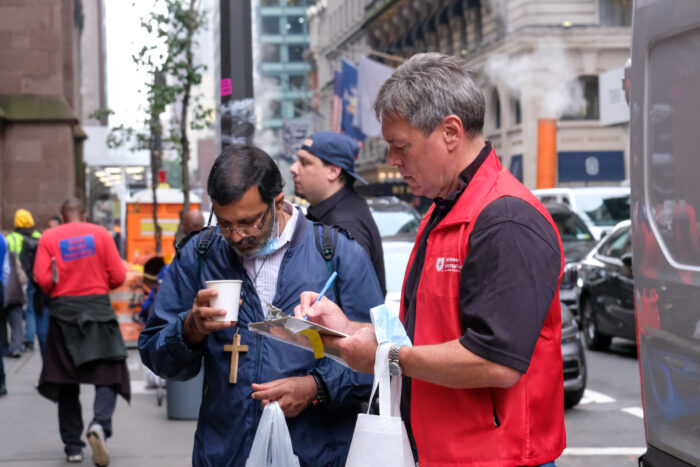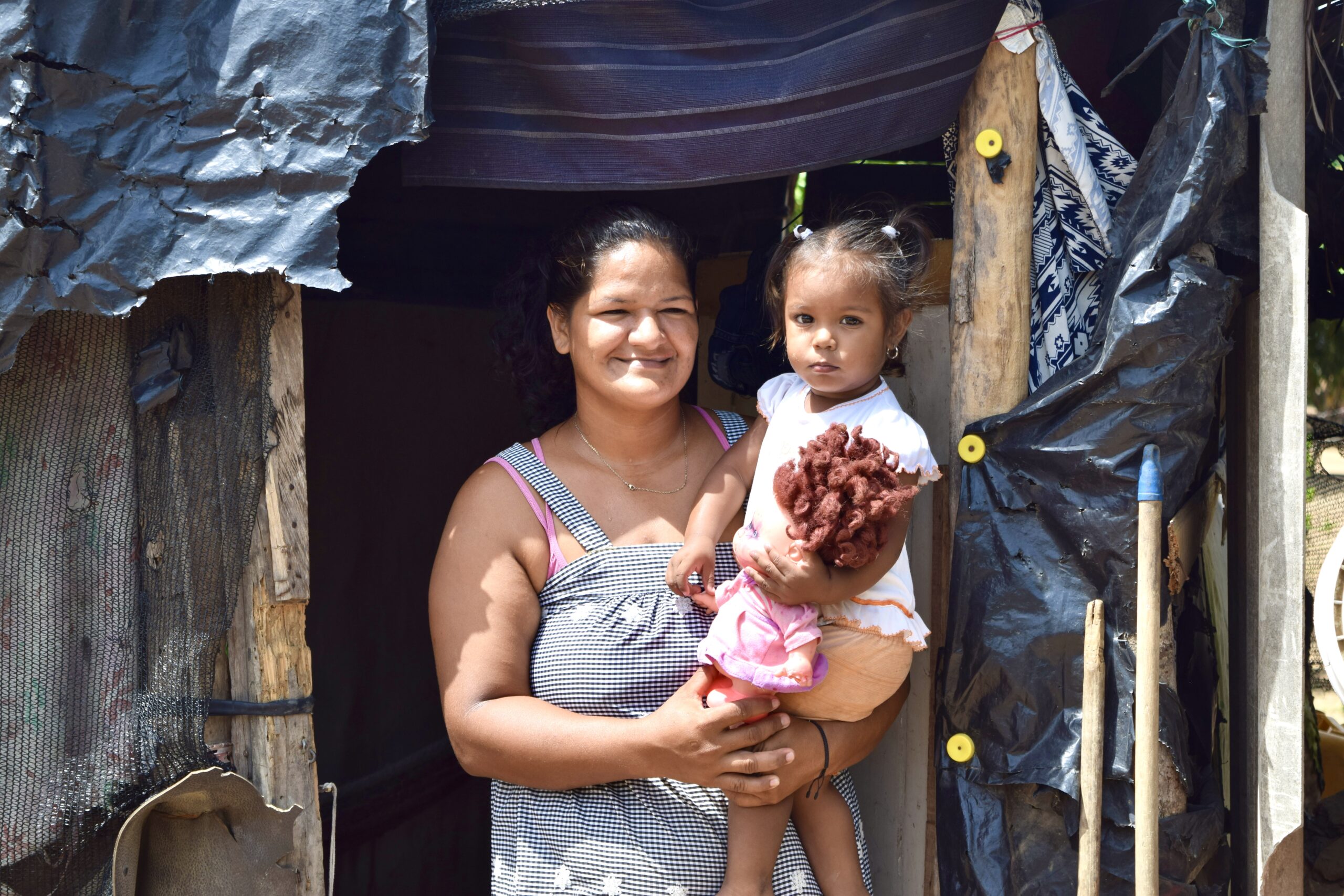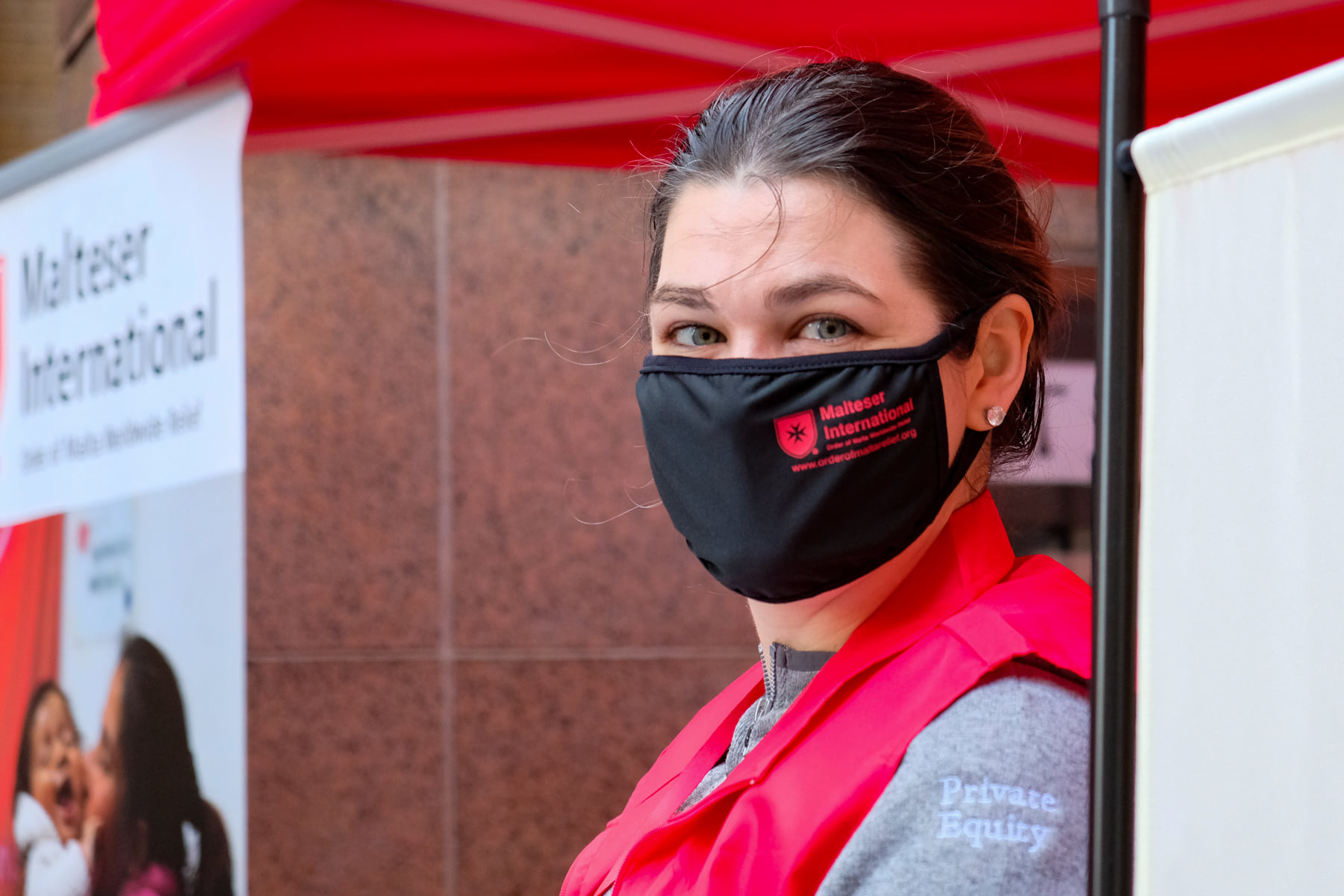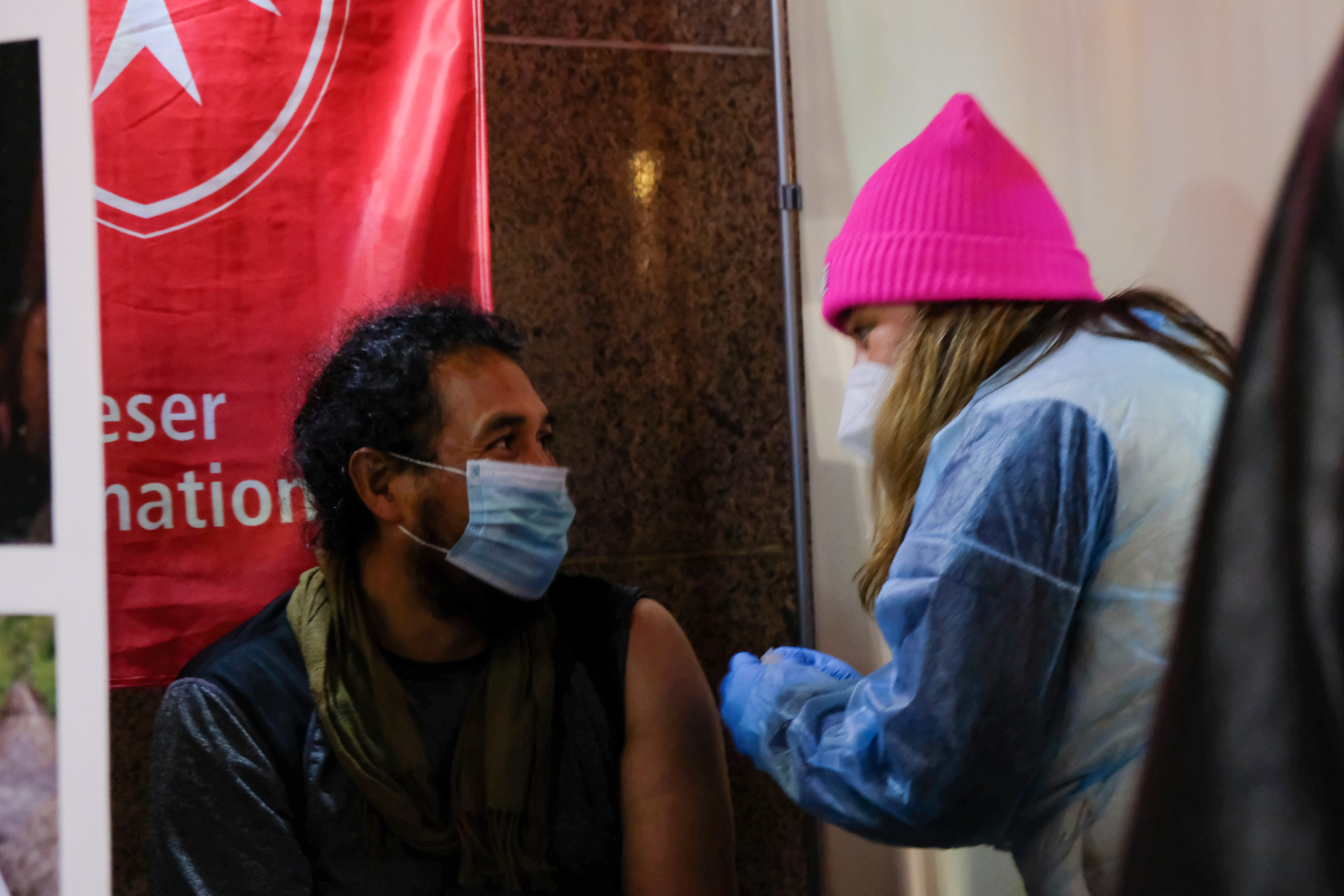North America
Safe Flu Vaccinations for the Unhoused
The migrant crisis has driven rates of homelessness in New York City sky-high and caused the Mayor to declare a state of emergency in early October.
Those arriving are increasingly vulnerable, disoriented, and in need of support. As winter sets in, Malteser International Americas and its partners on the ground helped vaccinate nearly 80 individuals against the seasonal flu in late October.

Thanks to amazing volunteers from the Order of Malta American Association, we held two clinics – one at the St. Francis Breadline, the other at Fifth Avenue Presbyterian Church, both in our community of Midtown Manhattan.
Since 2020, we’ve partnered with the St. Francis of Assisi church, to deliver vaccines to their guests for the Breadline – their soup kitchen which serves nearly 300 people daily – and has been running for 85 years.
Fr. Cavoto, KMoB, of the St. Francis of Assisi church, believes in the importance of the church in this great time of need, especially for children and families, for whom the church has a special place. Reflecting on the readiness of Franciscans to help the poor and the vulnerable, Fr. Cavoto says, “it’s not only important work, it’s our life,” one that Franciscans share with the Order of Malta. “St. Francis was very inspired by what he saw Blessed Gerard doing in Jerusalem.”
With the migrant crisis swelling New York City’s shelter system, the individuals finding themselves here – a city with a complex bureaucracy even for a native English speaker – are overwhelmed and need more support than we can imagine.
Speaking with Christine Boyle, Director of Outreach and Mission at Fifth Avenue Presbyterian Church (FAPC), where we hosted the second flu clinic says, “there’s a whole new level of fragility in the population we serve.”
Many struggle with very basic essentials like finding appropriate housing, or ensuring they have enough food for themselves and their families. Struggles with mental health and addiction are also common. 70% of the population FAPC serves is in the shelter system, and nearly 30% lives in subsidized housing. In this precarious state, individuals are forced to make impossible choices: with the little money they have, do they pay their rent or do they put food on the table? This is what it means to be food insecure.
Thus, many choose to come to FAPC and soup kitchens like it. “A Place at the Table,” FAPC’s soup kitchen which operates every Monday and Wednesday, began as a parishioner-led initiative in 2020, and now serves over 100 people each day. They’re part of a tripartite Ecumenical Outreach program along with St. Patrick’s and St. Thomas.
Reflecting on the importance of coming together in times of great need, Ms. Boyle says “it’s less about what we believe in and more about whom we serve.” “The holy family were asylum seekers – this narrative is part of biblical history and it our duty to support them.”
Asylum-crisis here reminisces of the crisis in Venezuela
Migrants and refugees have been fleeing Venezuela for many years, and it’s one of the main themes in our work in Colombia, and along the border between Venezuela. Nearly 7 million have left their country since the beginning of the crisis in 2018, making it the second largest external displacement crisis in the world, according to UNHCR.
Their arrival to New York City is testament to the conditions they face, and reminds us of our duty in supporting the most vulnerable. “We’d heard about it in the news,” says Ms. Boyle, “but seeing them here and hearing their stories really humanized the humanitarian crisis for us.”
To date, more than 31,000 asylum seekers have arrived here since the Spring, forcing the City to open 60 emergency shelters to house them.




